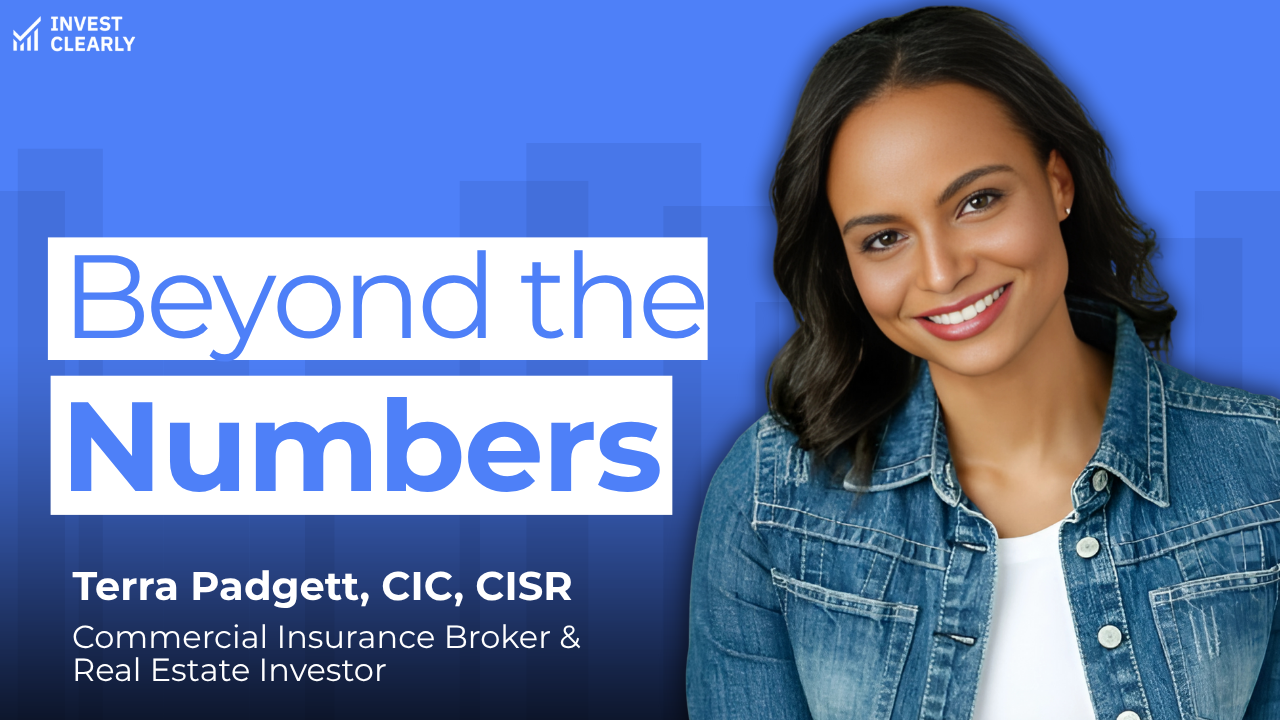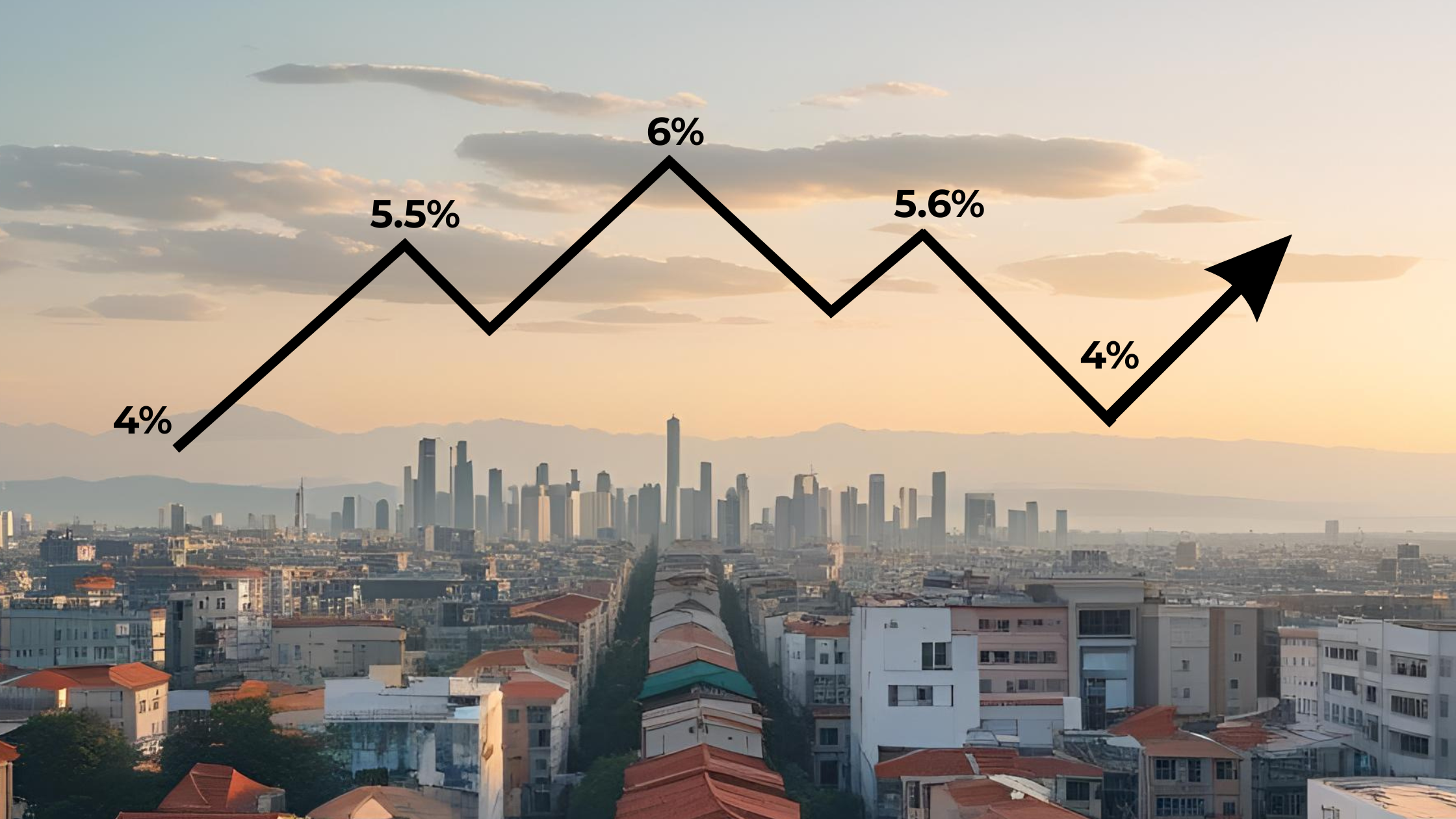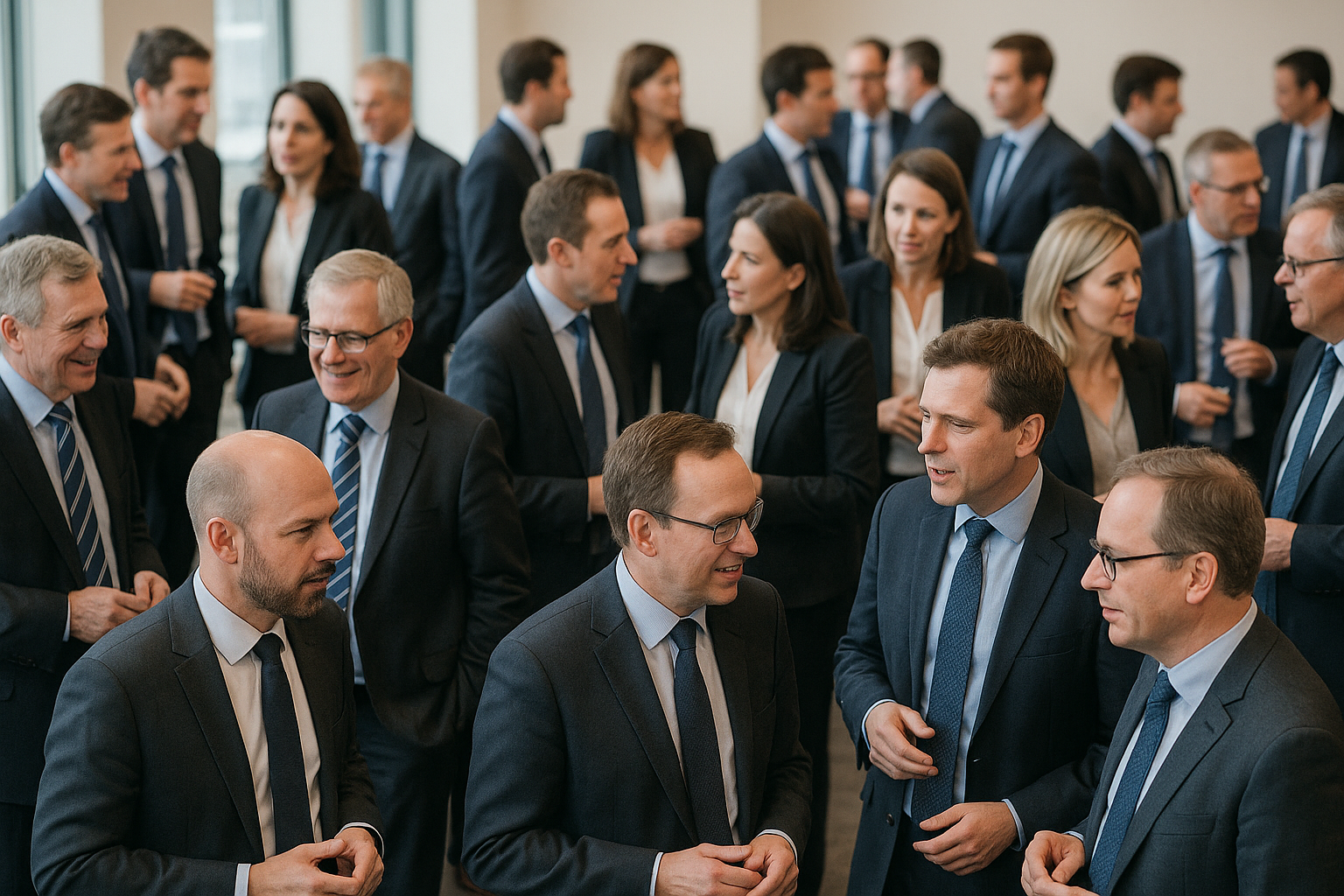
Accumulation, Diversification, and Trust with Terra Padgett
Terra Padgett, a commercial insurance broker and founder of PowerPool Fund investing club, shares her grounded approach to real estate investing. She reveals the framework she uses to manage a portfolio of over a dozen deals, moving from active single-family rentals to passive syndications. Terra offers a transparent look at her "post-call litmus test" for vetting sponsors, the power of using an investment club to build confidence, and why understanding your personal risk tolerance is the true key to success.
Invest Clearly Podcast - Episode 7
Guest: Terra Padgett
[00:00:31] Pat: Welcome back to the Invest Clearly podcast. In today's episode, we sit down with Tara, an LP who balances a full-time job, parenting, and growing a passive investment portfolio. She shares how she tracks sponsor performance, how her valuation process has evolved over time, and what it's like making investment decisions without a partner to gut-check ideas.
We also talk about liquidity planning, portfolio concentration, and lessons learned from deals she chose not to invest in. If you're managing limited time and capital across a crowded landscape of private offerings, this conversation offers a grounded look into one investor's approach. Let's get into it.
[00:01:31] Pat: For some reason, every time Tara and I connect, there's a major life event happening. The first time it was a hurricane going through Houston. The second time you were having a baby, and now it's like, "Hey, let's connect in a more normalized environment," you know?
No, but it's great. Tara, for those listening, I'd love for you to take a little bit to introduce yourself. I'd love to hear about your background. You can talk about Power Pool Fund, what got you into real estate investing. Are you a full-time LP? Do you work while you do this? Really just give us a bit of an introduction.
[00:02:04] Tara Padgett: Yeah, so I'm Tara Padgett. I'm the founder of Power Pool Fund, and I am a busy professional. I do work full-time. I'm currently still on maternity leave because I just had the baby.
[00:02:16] Pat: Congrats, by the way. I don't know if I said it.
[00:02:18] Tara: Yeah, thank you. So I'm a commercial insurance broker by profession, and my expertise is working with real estate developers, owners, property managers on the commercial side. Writing their property and liability insurance. I've been doing that for the past 17 years and I enjoy it. I find it fascinating. Most people don't find insurance fascinating. I do.
That's what I call my nine-to-five. But then I say my five-to-nine, my 5:00 PM to 9:00 AM, is my real estate entrepreneurial side and the real estate ventures in the finance space where I'm trying to just grow and build a massive portfolio both from single-family assets, but then also more recently as an LP.
I don't have the time—I have three small boys: six, four, and now three months. My time, like most people's, is your most valued asset. So I'm starting to build heavily into that LP side because I don't have the time to learn all the ins and outs of every single asset class in every single market, and every way of how to asset manage every single type of property. I am definitely an LP and really growing that portfolio aside from the single-family portfolio.
Commercial insurance broker by profession, real estate entrepreneur by passion.
[00:03:35] Pat: Awesome. And I think you said you are in about 12 positions?
[00:03:38] Tara: Yeah, over a dozen. So 14 to date.
[00:03:42] Pat: Okay, fantastic. And are most of those through Power Pool Fund, or how did you get into all of that?
[00:03:47] Tara: So some of them are through the investment club Power Pool Fund. Some are through a club that I'm also a member of, another investment club. And then some are just direct investments that my husband and I invested in directly on our own. So it's a little mix of both.
[00:04:00] Pat: Awesome, fantastic. And at a high level, how are they currently performing across the board? You don't have to get into specifics, but just like some are good, some are bad, whatever you prefer to share.
[00:04:09] Tara: Yeah, so a lot of them are just in their business plan execution mode. I probably started investing in these deals around early 2023, so we're probably about two years into a lot of them. None of them have come back and said we need a capital call or anything like that when I look at the quarterly statements or distributions.
To date, they're all just in the process of executing the business plan. I'd say let's chat this time next year because a lot of them are anywhere from three to six years. Once we cross over that three-year mark and start seeing some exits...
I'm proud that when I really started focusing on LP investing was right around the time multifamily, which has been kind of the darling of real estate, started to have its struggles. So I don't have a whole ton in multifamily, but I definitely have multifamily, so that'll be the most interesting one to see how things shake out. A lot of them are distressed financially—maybe not the asset itself, but the debt structure and things like that are stressed, and we'll see how it plays out.
Since I've been extremely aggressive in accumulation mode over the past two and a half years, really trying to ramp up the LP side from the single-family side I had prior, I'm ready to just sit back, relax, and let the dough roll in, so to speak.
[00:05:35] Pat: Everybody's goal. That's awesome. So you have a little bit of multifamily—what does the rest of it look like? And in this massive acquisition phase or growth phase, are you focusing on one asset class over another?
[00:05:47] Tara: No. Diversification, diversification, diversification. Diversifying across sponsors, diversification across different types of deal structures, whether it's debt structure, equity structure, preferred equity deals, things like that. Funds and single assets. I like to put the eggs in a lot of different Easter baskets, so to speak.
With that, we've got some debt deals we've done both on a debt fund and also just loaning to someone that was doing a flip project and being a private money lender in that deal. We've got some equity positions where we are just common equity. Then we have some preferred equity positions.
Personally, I like funds. I'm not one that has to see specifically what this asset is doing. I like the diversification of a fund because if I'm in an industrial real estate fund and one asset has a move-out or something, that doesn't take the whole deal. It doesn't take the whole portfolio. So I like having it spread out across a lot of different assets, and why we partner with operators and vet the operator on the front end is because even in some—like one I think we're doing is a blind fund where it's just "this is what we're going to invest in."
But that's the point of vetting that operator—I'm trusting them to be able to select and choose the right asset because Lord knows I don't know everything there is to know about multifamily. I don't know everything there is to know about industrial, and I don't need to know everything there is to know about it. I need to know enough to be dangerous, to know enough to make an informed decision of where I'm wiring my money to and what it's going to be working in.
That's a big part of the operators that you partner with—you trust that they're going to make and be good stewards of your capital and be able to make proper decisions. Therefore it's a win-win for all. They're making money doing what they do. We make money doing what we do, which is being financial partners. It's a win-win for all.
It's a good mix of different stuff. So industrial, I have a land deal that I like. That one's going really well. That's about a 16% annualized return that's been paying. A land fund that I'm invested in. Of course there's multifamily. The coolest one really though is they do a lot of different stuff, but one thing that I saw pop up that they put into the fund is like a luxury car garage. So I'm like, "Oh, people with luxury cars and boats apparently need that space to be able to store it."
That's one asset that's in the fund, but they do different land entitlement and development and then sell it to national home builders. They're just taking raw land and going through that arduous entitlement process and developing, getting ready for it to go vertical.
It's really cool seeing their updates and pictures. When they say, "Hey, we're buying this or investing in this building, this luxury car garage," I'm like, "Ooh, cars and boats," and they send pictures of the Ferraris and all this stuff that's in there. It's cool to see the different things where my money is being put to work. When I call my employees Benjamin Franklin and Ulysses S. Grant and Andrew Jackson and George Washington, they're out there doing a lot of good stuff.
[00:08:50] Pat: That's fantastic. When I was living in Fort Myers, Florida for a little while, before I left that was actually like a big thing I saw popping up where they branded them more as like man caves. It was like a flex industrial unit that they were leasing up to people who had these cars and boats, and on the top level that would typically be an office, they made it almost like a hangout spot. And they were flying off at a certain point in time, so that was pretty cool that you brought that up because I'd never seen it before.
[00:09:17] Tara: Neither had I. So I kind of like seeing those different asset classes, thinking outside of multifamily or thinking outside of office—maybe not now, but you know, 10 years ago.
[00:09:29] Pat: Yeah, I mean, I'm in a unique position where I get to see sponsors across the board and we do get a lot of people that request to add additional funds or asset classes to Invest Clearly. I think I've talked about this on literally every episode so far, but there are quite a few that we're not there yet. We're just focusing on the real estate stuff. But people have—I've heard of somebody that syndicates horse racing. I know one guy asked me to put on a whiskey barrel fund. Marinas are coming on, assisted living's coming on. So it's pretty interesting that it's getting beyond these core niches that are becoming more and more widely asked about, which is cool.
[00:10:06] Tara: Riches are in the niches.
[00:10:07] Pat: Yeah, that's what they say. We had somebody—there's somebody I talked to recently that does wedding venues. They're not quite hospitality, but they do wineries and wedding venues and things like that, which is pretty interesting.
Okay, two questions based on that last statement. So you talked a lot about vetting operators and then a lot of opportunities that you are invested in, but also considering. Walk us through your process to vet the operator and then where you're getting your deal flow from currently.
[00:10:34] Tara: Yeah. The funny thing that I always joke about—you know, because we're talking about this, if I talk about a luxury car garage, you'll probably see something about a luxury car garage on your feed. Big brother's always listening, whether it's our phones or computers. Sometimes you think about something and all of a sudden it pops up in a TikTok feed or something.
To the first part—where are we finding, or how do I vet the operators? The first step for me truly is once I have a phone call, a lot of times it's their investor relations contact. Once I have a phone call with them, I'm looking for a warm fuzzy. I really am. I'm looking for consistent messaging. So when we are speaking, if I ask a question, then ask it later in a different way, is the message consistent? And do I just—this really is a "do you know, like, and trust" kind of thing, because you're marrying them for at least three to six years with the deal or however long.
I'm really looking for warm fuzzy. Do we vibe well? Do you sound competent in this space or are you just kind of salesy? Yeah, we can laugh all day and have good conversations and talk basketball and talk the weather and talk whatever else is going on. But are you competent in this space? Do I get a good vibe that you actually know what you're talking about and the structure that you're in?
I just remember one operator that I talked to. He wasn't very charismatic—it wasn't just like the most laughable, fun... I mean, I like to make jokes and have a good time. I mean, we don't have to take everything so serious in life. I work in insurance and it's always like the apocalypse is happening, but we can find some laughter and some humor and some fun in what is outwardly thought of as a very boring business.
But he wasn't very charismatic with it. But I just had a knack for him. He knew what he was talking about. He was very spot on. He spoke really high level on stuff, which I appreciated. It's not just kind of fluff and anecdotes and the same stuff you hear—"your investment's not guaranteed returns," blah, blah, blah. But he really spoke from his own personal experiences.
So even though we weren't laughing and joking and he wasn't really as charismatic, kind of a sales-type person, I just had a warm spot in my heart for him because I was like, "I like this guy. He seems really invested in what he's doing." He was kind of on the back end—I think he mentioned he'd worked somewhere for 30-something, 35 years. I'm like, anyone that's been in the business 30, 35 years, you're probably not 30 years old.
So I just thought he really was invested in what he was doing and the company that he was working for. He was saying he was bringing his family members in to invest and stuff, so I really just got a warm fuzzy for him. Now, he could have been pulling the wool over my eyes and just joshing me all day long. I don't know. But he did a great job of it.
I haven't invested with him yet, but anytime their deals come through my inbox, I am definitely looking at them and considering them. I think where I take that story is that first few phone calls that we have and that interaction—they get the green light so deals that come through don't automatically just go to the trash because I thought they were jerks and just talking hot mess and who knows what they're really doing out there.
I'm considering their deals just because I liked them and I got that good warm fuzzy that they knew what they were talking about. He was competent, the company had been around for a while, and all the things that we dialogued about. We had very relatable conversation.
[00:14:37] Pat: And so when you mentioned that was the first call, do you have like a framework of how many calls you typically have before you invest? Or is that just, "Hey, I traditionally have an intro call, then a deal comes through, and then I take it deeper"? What does that process look like?
[00:14:52] Tara: It's different for different operators, and I say different operators meaning larger or smaller, depending just on how they operate. But I really a lot of times defer to them unless I'm specifically looking for some specific asset class to invest in. Then maybe I'm reaching out—I know you're in this space, I'm looking at your portal, what do you have open now? Or what's going on?
But more times than not, it's more of an initial call. And then I kind of end with, "I look forward to talking to you again." And that's kind of, let's see what they do. Is it just an initial call because they met the requirement for the SEC—you have to establish a relationship with them? So whatever that means. Is it just a 30-minute phone call?
But I like to see how do they follow up? When they're coming to town and doing an investor roadshow, are they reaching out? Are they reaching out with phone calls or emails, "Hey, heard you were pregnant," or "heard you just had the baby"? Are they building that relationship beyond just that initial, "Okay, well I got to, quote unquote, establish a relationship with you," which may be a 30-minute phone call per the SEC, but are they continuing up?
Really the ball is in their court to do that and to follow up with the LPs, with the investors that they're trying to raise the capital from. So I really defer to them and we see how it goes. Do they follow through and follow up on that or not?
[00:16:05] Pat: Yeah, that's great feedback. And then deal flow. How are you finding these GPs? How are you accessing—where is that all coming from?
[00:16:13] Tara: So initially when I first started, I started out with the platforms. So like RealtyMogul being a platform, EquityMultiple, Cadre was another platform that I think they sold to YieldStreet or something. There's a lot of different platforms out there, and so I just started looking at those platforms initially where I started finding deals and finding operators and sponsors and looking at that.
Once you kind of get into the space and either you invest in a deal or two, then you start meeting people. I've attended conferences and you start talking to people and you start asking, "Well, who are you doing deals with and who are you putting your money with?" And then you just start kind of networking and talking to folks. And then again, the more you talk about it, then you start seeing stuff on your feed. You start seeing stuff on Facebook or Instagram or whatever different feeds.
Initially it started with me utilizing the platforms. And then from there it just kind of snowballed. And then even in some Facebook groups that I'm a part of, someone may post like, "I just invested with them and I'm having a horrible time," or "I invest with them and I am having a good time." And then I heard about Invest Clearly on another podcast that I was listening to where someone mentioned about vetting operators. Another thing you can do is look at sites like, I think it was called Go Invest Clearly at the time.
[00:17:23] Pat: We didn't have the domain yet. Yeah, that's awesome.
[00:17:25] Tara: Yep, so it was a little while ago, but now it's Invest Clearly. And so I got on site and then we started communicating. And I think what you're doing with Invest Clearly is phenomenal in this space. It's like the Yelp for LPs that are in this private placement, commercial syndication, whatever term you want to use, space.
I love how you verify—I have to send a couple different ways to show that, "Look, I am in this deal." So I think it's great. So now that is one of the things that I'll look and see what other people are saying there, because a lot of our world is referrals. You go to McDonald's, they're sending you on the receipt, "Can you rate us and review us, give us feedback." I mean, every Amazon package you get, they want feedback. Rate us on a five star. How is your delivery service? How did the DoorDash do? Everything, everybody wants feedback. So I think it's great. That's how it started and then just how it has evolved from there.
[00:18:21] Pat: Awesome. Thank you, that was a very nice endorsement. So when you think about—I spoke to another LP recently that got started the exact same way. It was on those platforms making small investments and then evolved over time. When you think about when you first got started, has your maybe thesis or approach changed when you started versus now? Are you looking at maybe different risk profiles, different asset classes than when you first started and thought you wanted? How has that evolved over time?
[00:18:54] Tara: Truth be told, I think when I first started out, I didn't have a game plan of what I wanted. I just knew I wanted to be more hands-off. The single-family was a lot more work and a lot more active than what I had set out to do. So I was looking for something a lot more hands-off to handle all those day-to-day activities.
I don't really know if I had a plan or a goal in mind, like, "I want to invest in this market," or "I want to invest in this asset class." I think I just started looking at the—like I said, using the platforms. There's a lot of different operators and sponsors on there. I just started looking at the deals and kind of just comparing and contrasting and seeing what the numbers looked like in multifamily versus industrial versus land and things like that. New development and understanding how the deal worked from a new development versus a value-add.
So yes, it's developed over time. I'm an insurance person, so I'm always thinking about what is my risk profile, what is my risk tolerance? Initially I didn't really have one, but now that I started and have been looking at more deals and certainly investing in more deals, I've developed my risk tolerance and my risk profile, and it's really based on my comfort level.
For me, at the stage and phase of life that I'm in, I'm still in accumulation mode. You kind of go from accumulation to maybe then you start to transition later on, and then once you're really into retirement years, you kind of want steady Eddie just steady cash flow. You're not looking to do these more speculative or more grandiose, more dramatic sexy investments or whatever. You kind of want slow and steady because you don't have the time should something go wrong to make it up.
The risk profile—I'm a lot more riskier now just based on the phase and stage of life that I'm in. I'm willing to take a little bit more higher risk on things. Of course, nobody wants to lose money. What they say: Buffett's rule number one, never lose money. And rule number two, see rule number one. You never want to lose money. I don't want to lose—I found $5 in my pocket. I could have been doing something with that $5.
But I do take a lot—I have a higher risk tolerance level. I don't want to say I take risks, I'm so risky or whatever, but I have a higher risk tolerance level just based on the phase and stage of life that I'm in. And that's going to differ for different folks. And that will change five years from now, 10 years from now, and as different things occur in life.
[00:21:10] Pat: Yeah, awesome. And so we talked a little about vetting the operator and we talked a little about your risk tolerance. When you shift more towards vetting the deal, like say the operator hits your marks, is there a certain thing you look for where that risk tolerance red flag goes off and you're like, "I'm done"? Or is it like a process? What sets off for you: I like the sponsor, let's look at the investment, yes or no from a pursuit standpoint?
[00:21:35] Tara: So that's kind of twofold. A lot of what I like doing with Power Pool Fund and investing with an investment club is that I can have other thoughts and opinions on what other people see in deals as well that I may not even think about. To help make those decisions. And even where I may be like, "Yes, this is a deal I want to do," if others in the club are like "uh" or whatever for valid reasons that they may bring up that I may think is no big deal or whatever. I like that model because it helps me look at a deal from a different lens than I probably just would be looking at if I was just solo doing it all. Just what I thought, what I saw, what I thought. Because I'm going to always be biased to my own thoughts. Why? Because they're my thoughts. But your thoughts are different. And so I like doing it through the club model where you are hearing opposition of thought. You're hearing someone else's perspective and someone else's view, and it kind of makes me look at things in a different way.
So when I'm looking at an operator or vetting even their deal, some red flags—I would say a big one for me and what I've caught and found on a couple of deals recently this year where they talk about the returns, but it—and they are speaking on a return on capital, but really it's a return of capital where they're taking that initial capital and returning it to you and calling it a return. Well, returning back my money, yes, it's a return in the fact that you're returning it back to me, but it's not—I'm looking for the growth on that money, the return on the capital more than the return of the capital.
When knowing certain nuances in deals, having just reviewed so many at this point—and five years from now, we'll be even that much more quicker and sharper with it. I want to see clear, succinct: this is the fee, this is how return, this is the return, a true return, meaning growth on our capital, not just returning our initial investment and calling it a return, but a true growth on capital.
I want to see them with skin in the game. I want to see them have some money into it. So if they're not having any money into it, I'm probably not going to do it because it's easy to take risk with other people's money because you're not out of anything. And also not just money you're putting in from your fees, but actually your money in your bank account that you could be splurging on a vacation with, but no, you're putting it in this deal.
So those are some things that I want to see in a deal—that you have your money in it, that you're not playing semantics with the words like, "Oh, it's a return." But no, a return of my capital is not a return on my—I'm doing this for growth. I want my dollar to grow. I want it to come—Benjamin to come back greater than what he left me at. So just returning Benjamin right back to me, you're playing semantics in words like it's a return.
If you're doing it on that kind of—what I think it may be, it may not be also common to everyone, but I think it's kind of a common thing to be able to be just transparent and straightforward about—what else in that 200-page PPM am I not understanding with how you're really structuring this deal? We don't always get it right, but the goal is to try to bob and weave and avoid landmines and go in with as much information as we think that we understand in doing these deals.
So those are probably some of the red flags—like being just: give it to me straight, don't try to wrap it up and put lipstick on a pig because it sounds good to get the money. But let's talk because if it's a good deal, it's a good deal. You don't have to finagle it and show it this way versus that, or "Oh yeah, I'm putting my money in," but really it's the money from the fees that you got off the deal to put it in. So you don't have to do all that. If it's really a great deal that you believe it's a great deal.
[00:25:05] Pat: Sure. Yeah, absolutely. So tell us a little bit more. You mentioned Power Pool Fund very briefly. Tell us how it works. How do you guys work together? How do you make the investments, how do you do the evaluation? What is that whole—and just what is it like?
[00:25:17] Tara: Yeah. So in general it starts with me as the founder and the leader of the club as the deals come to my inbox or if I'm out trying to talk with other people that are LPs that are doing deals and finding different operators and sponsors. We'll bring a deal to the club. I try to just do a diverse mix of debt and equity deals and across the gamut of asset classes. You mentioned marinas earlier. We did just review and look at a marina deal. Just bring it to the club. Bring their pitch, the operator's pitch deck. Sometimes we'll bring the operator on the call, looking at whatever they have to present. Like they have a webinar. Sometimes they'll do a prerecorded webinar that we can send out.
And then we'll just jump on a call and start to talk about it, going through their slide deck and asking questions, whether that's direct to the operator on the call or just through emailing back, just different questions that we may have based on their pitch deck and things like that.
So it really just starts with myself as the founder and leader of the club: here's an opportunity, here's a deal. I'm not an asset manager in the sense that I'm managing other people's money. It's more of: here's an opportunity that's out there that you probably don't know about if you're not locked into this space. Let's talk about it. Let's review it and see if we want to pool our money and invest in that deal. And so everyone kind of has to make their decision, their own decision for themselves because it is their money. I can't tell you what to do with your money. You have to make that decision.
So a pillar of the club is education. So we do different education topics around the real estate and passive investing space to just make us that much more confident and knowledgeable as we're making decisions and reviewing deals. But then another part of it is we can't just sit on the sidelines. I use a lot of sports analogies. You're not going to get good at shooting free throws just by watching LeBron do it. You got to actually get out there and do it. And so that's the other part of the club—we're putting deals in front of you to actually put your money to work in real estate and see how it goes. Learn some lessons. What would you do differently next time? What did you like that you would continue to do every single time?
You got to just get out there and start. Experience is the best teacher. And so that's really what we're doing in the club—just putting deals in front of a group of people and let's talk about them. Would we put our money with them? Would we not put our money with it? And learning along the way.
[00:27:30] Pat: Yeah, that's great. So you are a mom, a full-time job in insurance. You are a borderline full-time LP. You've got the club, you're invested at night. And it's impressive, right? It's pretty awesome. And I didn't bring up, but you were a Hall of Fame basketball player as well, which—I know you mentioned free throws a few times. I'm far outside my world, but before we wrap up, I'd like to ask you the question that I love asking everybody on here: what part of passive investing do you think needs to die?
[00:27:59] Tara: What part of passive investing that I think needs to die? I would say that you're going to do a deal and you're going to be rich. You're going to put your money in one or two deals or a couple deals, and you're going to put $50,000 in and get $1.5 million back. And it's going to just happen like that. And that's just so far from true. And it's a slow path. It's largely a time game. It really is. Even with returns and distributions and people say steady cash flow—depending on, of course, the more in, the more out. But it is a really slow game and it's really a time game to building.
What I would say: when you consider yourself just by being an LP wealthy in it, you're probably at a certain level of wealth. If you're doing these deals in the first place, you're probably not a paycheck-to-paycheck type of person if you're even investing $50,000 or whatever into these deals out of the gate.
But I would say that it's not going to be one or a handful of deals and you're just retiring on it. So I would say it's a slow path to wealth. And I would also say that passive investing or investing in general, it's not "we either do this or we do that." It's multifamily all day long, or it's the stock market all day long, or crypto's the way to go. It's not an either-or. It's a "this and." You do this and you do that. You invest in multifamily and in land. You invest in debt investments and in equity investments. I think thinking that it's just "this one way is the way to success." There's so many ways to success. There's so many ways to make a lot of money, and I think looking at it holistically and not just, "I'm flipping, flipping is the way to go. This is how you do it. Get a TV show, that's how to do it."
But there's other ways to do it as well. And maybe you flip and you have—that's what I say my club is for the busy professional. But if you're a busy flipper, you can have passive income. If you're a coach and have your coaching courses or whatever, you still have to sell that course in order to do that, to make the income and make that return. So but you can also have that money working other ways as well. So it's not just a one-trick pony, one way, one lane. There's all kinds of different ways. And so I think it's a slow route to doing it. But you can do it diversely. Maybe that kind of rolls back to diversification. Do more than one thing and don't just think that this is the way to do it. There's lots of ways to do it. And so put a little bit of money in a lot of different things and then just watch that ship rise, or that wave rise, I should say.
[00:30:36] Pat: Yeah. Awesome. Tara, it's always a pleasure talking to you. Awesome having you on. If people wanted to follow you, get in touch with you, become part of Power Pool Fund, how do they get in contact?
[00:30:44] Tara: Yeah, so first they can follow us on all social media, so Facebook, Instagram at Power Pool Fund. And then also you can reach out at powerpoolfund.com is the website. Or send me an email info@powerpoolfund.com.
[00:31:01] Pat: Awesome. Thank you so much for joining.
[00:31:02] Tara: Thank you so much, Pat. I loved it.
Written by
Invest ClearlyInvest Clearly empowers you to make informed decisions by hosting unbiased reviews of passive investment sponsors from verified experienced investors.
Other Articles

What Needs to “Die” in Passive Investing – According to Guests of The Invest Clearly Podcast
Get the answer to the closeout questions of each podcast episode: “What do you think needs to die in passive investing?” The answers are wide-ranging, from misconceptions about risk, to misleading marketing tactics, to structural issues in how deals are presented.

Passive Real Estate Investing Advice from Experienced LP Investors
Experienced LPs shared their most valuable lessons, drawn from years of investing across various asset classes and sponsor relationships.

LPs Have Been Slacking on Due Diligence—Here’s How to Step Up Your Game This Year.
Market volatility, rising interest rates, and unexpected shifts in asset performance have underscored the importance of thorough due diligence. For Limited Partners (LPs), the need to sharpen their evaluation strategies has never been greater. Whether assessing a new sponsor, evaluating a deal, or stress-testing an underwriting model, a refined due diligence approach can help mitigate risk and enhance returns.

What Is a Capital Stack?
Every real estate deal needs funding, which is why real estate syndication and private equity investments have become so widespread. However, where that money comes from and in what order it gets repaid isn't random. It's structured carefully, layer by layer, in what's known as the capital stack.

What is a Capitalization Rate in Real Estate
Learn about cap rates, how they are used in commercial real estate, and how investors should consider them when evaluating passive real estate investments.

Evaluating Real Estate Sponsors: The Role of Social Proof in Investment Decisions
This article explores the role of social proof in evaluating real estate sponsors, the risks of relying solely on past returns, and the dangers of influencer marketing in investment decision-making.